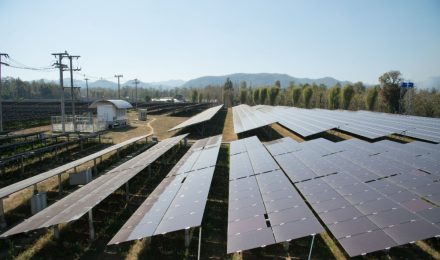Solar energy has emerged as a viable and sustainable alternative to conventional energy sources. It offers numerous benefits, including reduced greenhouse gas emissions, lower energy costs, and increased energy independence. However, despite its potential, there is still a lack of awareness and understanding among the general public about solar energy. This article explores the importance of solar energy education and outreach programs in raising awareness and fostering behavioral change among the general public.
1. The Need for Solar Energy Education
Solar energy education is crucial due to several reasons. Firstly, as the world faces the urgent need to transition to renewable energy sources and combat climate change, solar energy emerges as a viable solution. Educating the public about solar energy’s potential and benefits helps create a sense of urgency and motivates individuals to take action.
Secondly, numerous misconceptions surround solar energy, such as high costs and reliability issues. Education can dispel these myths, providing accurate information and increasing public acceptance of solar energy as a reliable and cost-effective option.
Furthermore, solar energy education raises awareness about the economic, environmental, and social benefits associated with its adoption. It helps individuals understand the positive impacts, such as job creation, reduced air pollution, and increased energy independence.
By educating individuals through various channels, including schools, community workshops, and online resources, we can empower them to make informed decisions regarding solar energy adoption. Solar energy education is essential in fostering a sustainable future by encouraging widespread awareness, understanding, and behavioral change toward solar energy utilization.
2. Raising Awareness
Raising awareness about solar energy is crucial to driving its adoption and fostering a sustainable future. The general public needs to be informed about the benefits and potential of solar energy. This includes highlighting its role in combating climate change, reducing carbon emissions, and achieving energy independence. Awareness campaigns should address solar energy misconceptions like cost and reliability to dispel doubts and encourage acceptance.
Public-private partnerships can be instrumental in organizing media campaigns, events, and public forums to reach a wider audience. Educational institutions should integrate solar energy education into their curricula, while community workshops and online resources can provide hands-on experiences and easy access to information.
By emphasizing solar energy’s economic, environmental, and social advantages, we can empower individuals to make informed decisions and participate in the transition to renewable energy sources. Raising awareness can inspire behavioral change and drive the widespread adoption of solar energy solutions.
3. Solar Energy Education Initiatives
Solar energy education initiatives are vital in raising awareness, promoting behavioral change, and driving the adoption of solar energy. Here are some examples of solar energy education initiatives:
• K-12 Solar Education Programs: Integrating solar energy education into K-12 curricula, such as science, technology, engineering, and math (STEM) subjects, to inspire and empower future generations to embrace solar energy solutions.
• University Solar Programs: Offering solar energy courses, research opportunities, and hands-on experiences in universities to develop a skilled workforce and support innovation in the solar industry.
• Community Workshops: Providing community workshops that offer practical and interactive experiences in solar energy, such as solar panel installation or solar-powered device building, to educate and inspire individuals to adopt solar energy solutions.
• Online Resources: Creating accessible and user-friendly online resources, such as webinars, videos, and interactive tools, to provide information and guidance on solar energy solutions to a wide audience.
• Solar Energy Events: Organizing solar energy events, such as conferences, fairs, and seminars, to bring together stakeholders, share knowledge, and promote the benefits of solar energy.
Various organizations, including educational institutions, nonprofits, government agencies, and private sector entities, can implement these initiatives. Investing in solar energy education initiatives can raise awareness, foster behavioral change, and create a skilled and motivated workforce to drive the transition to a more sustainable energy future.
4. Fostering Behavioral Change
Fostering behavioral change is essential in promoting the widespread adoption of solar energy. Here are some key strategies to encourage individuals and businesses to embrace solar energy solutions:
• Incentive Programs: Governments and utilities can offer financial incentives, such as tax credits, rebates, or grants, to offset the upfront costs of installing solar systems. These incentives make solar energy more accessible and financially attractive for potential adopters.
• Net Metering and Feed-in Tariffs: Implementing policies that allow solar system owners to feed excess electricity back into the grid, either earning credits or receiving compensation for the surplus energy they produce. This incentivizes solar adoption by making it financially advantageous for individuals and businesses to generate clean energy.
• Community Solar Projects: Encouraging the development of community solar projects where multiple individuals or organizations collectively invest in and benefit from a shared solar installation. This approach allows those unable to install solar panels on their properties to access the benefits of solar energy.
• Education and Outreach: Implementing comprehensive education and outreach programs that provide information on the benefits of solar energy, installation processes, and financial incentives available. These programs can be conducted through workshops, seminars, online resources, and public awareness campaigns to empower individuals with knowledge and address misconceptions.
• Policy and Regulatory Support: Advocating for supportive policies and regulations that streamline the permitting and interconnection processes, remove unnecessary barriers, and create a favorable environment for solar energy deployment. This includes promoting renewable energy targets, simplified permitting procedures, and fair compensation mechanisms.
Combining these strategies can create an environment encouraging behavioral change toward adopting solar energy solutions. It is crucial to emphasize solar energy’s long-term economic, environmental, and social benefits to motivate individuals and businesses to transition to a more sustainable energy future.
5. Overcoming Barriers
• Financial Barriers: One of the primary challenges to solar energy adoption is the upfront installation cost. To overcome this barrier, innovative financing options have emerged, such as solar loans, power purchase agreements (PPAs), and third-party ownership models. These options allow individuals and businesses to install solar systems with little or no upfront cost and pay for the system over time through savings on their energy bills.
• Policy and Regulatory Support: Supportive policies and regulations are crucial in promoting solar energy deployment. Governments can streamline permitting processes, establish clear interconnection standards, and offer tax incentives, rebates, and grants. Net metering and feed-in tariff policies also enable solar system owners to sell excess electricity back to the grid, making solar energy more financially viable.
• Industry Collaboration: Collaboration among solar industry stakeholders is essential for addressing challenges collectively. Manufacturers, installers, and advocacy groups can work together to improve solar energy education efforts, develop standardized installation practices, and drive down costs through economies of scale. Sharing best practices and knowledge within the industry can further accelerate the adoption of solar energy.
By addressing financial barriers, implementing supportive policies, and fostering industry collaboration, we can overcome the hurdles that hinder widespread solar energy adoption and create a more sustainable future.
Solar energy education and outreach are vital in raising awareness, dispelling myths, and fostering behavioral change among the general public. By equipping individuals with knowledge about the benefits and applications of solar energy and addressing barriers through supportive policies and financial incentives, we can accelerate the adoption of solar energy and contribute to a more sustainable future.



